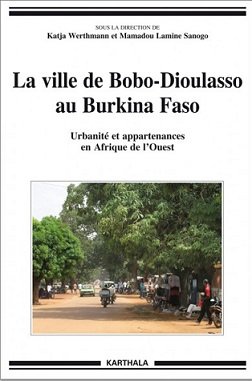
par Admin-Apad | 30 Mar 2015
Sarah Fichtner, 2012.
The NGOisation of education has emerged both as a driving mechanism and as a consequence of the globalisation of public services that increased tremendously during the peak of neoliberal global governance in the long 1980s. Currently, NGOs’ development aid in the field of education involves primarily the promotion, marketing, and management of global models, norms and standards, and to a much lesser extent the provision of resources and services to ‘the poor’. This development-driven promotion of norms, i.e., shared, evaluative expectations of behaviour regarding how beneficiaries of aid should develop and manage their own development, takes place at the very heart of the state as well as at its margins. Based on four case studies from the West African country of Benin, Sarah Fichtner examines the processes of the NGOisation of education from an empirical perspective. She provides a counter-perspective to essentialist and exoticising essays on the African state, as well as to econometric and world-culturalist approaches to education in the Global South.

par Admin-Apad | 30 Mar 2015
Christian Lund and Catherine Boone (eds), AFRICA vol. 83, no. 1, 2013
Land issues are not only about land. Rather, they invoke questions of property more broadly, implicating social and political relationships in the widest sense. Struggles over property may therefore be as much about the scope and structure of authority as about access to resources, with land claims being bound up with questions of authority, citizenship and the politics of jurisdiction. This collection investigates the relationships between property, citizenship and political institutions, and how each of these plays a role in constituting the others. This seems especially relevant in the light of the many efforts at land tenure reform that tend to assume the separate and settled existence of property, of citizenship, and of the state. We consider none of these socio-political features as separate or pre-established facts. Rather, land politics involves dynamic claims whose success and materialization depend upon the power relations among social groups and actors wielding different forms of institutional authority over land.

par Admin-Apad | 30 Mar 2015
Katja Werthmann and Mamadou Lamine Sanogo (eds). 2013.
Toute étude sur l’urbanisation et l’urbanité doit tenir compte du fait qu’aucune ville ne ressemble à une autre. La capitale Ouagadougou et la seconde ville du Burkina Faso, Bobo-Dioulasso, se distinguent l’une de l’autre par leur histoire, leur composition démographique, leur urbanisme, leurs ressources économiques, leurs éléments socioculturels, etc. Leurs habitants s’identifient en tant que « Ouagalais » ou « Bobolais ». Mais qui sont exactement ces « Bobolais » ? Se caractériser soi-même comme Bobolais ou bien être caractérisé comme tel par d’autres est un élément d’identité urbaine.Si de nombreuses études ont déjà été réalisées ou consacrées à Bobo-Dioulasso dans diverses disciplines, jusqu’à présent elles faisaient rarement référence les unes aux autres. Cet ouvrage collectif sur Bobo-Dioulasso y remédie en réunissant les contributions d’ethnologues, d’historiens, de linguistes et d’économistes. Ces contributions se penchent sur la place historique et économique de Bobo-Dioulasso dans la région, sur les transformations coloniales et postcoloniales, ainsi que sur certaines catégories ou groupes sociaux. Elles montrent que l’urbanité et l’appartenance sont des processus dynamiques dans lesquels divers éléments sont déterminants selon la situation sociale ou historique.





Recent Comments